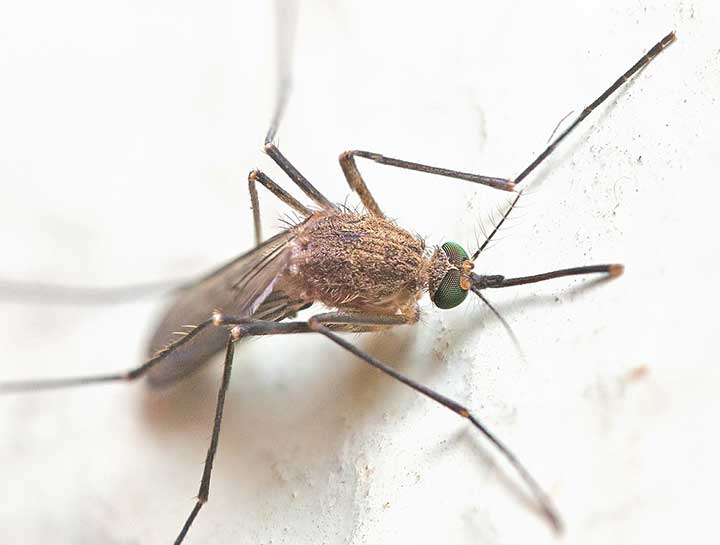Feline Heartworm- Prevention is the Key

Heartworm disease in dogs has been around for a long time. The disease is caused by a worm (Dirofilaria immitus) that grows up to 12 inches in length in the heart of a dog. The worm produces live offspring (microfilaria) that circulate in the bloodstream and are picked up by mosquitoes when they bite an infected dog. The microfilaria develops into infective stage larvae within the mosquito, and these larvae are transmitted to another dog when the mosquito bites the dog. The dog is the natural host for this parasite, and the life cycle for this parasite is complete only in the dog. Canine heartworm disease can be treated when diagnosed by a blood test and can be prevented by prescription medication.
So, why the concern about cats and heartworm disease?
Cats are exposed to infected mosquitoes, just like dogs. But since they are not the natural host for the parasite, it does not affect cats the same way. Only a few larvae make it to the heart, most are trapped in the lungs. Rarely do the heartworms reproduce in a cat, so cats are not a source of infection like dogs are.
Heartworm disease in cats can be asymptomatic (no obvious clinical signs) or can cause many problems, such as asthma, vomiting, diarrhea, coughing, collapse, sluggishness, and even sudden death. The treatment required to kill the heartworms is straightforward in the dog but is very dangerous in the cat, and can be fatal. Therefore, treatment is limited to alleviating the symptoms and letting the heartworms die naturally.
Increased heartworm disease in local cats
The veterinarians at Hazel Ridge Veterinary Clinic have been carefully screening and testing for Feline Heartworm Disease for years. The disease is localized to the areas where the infected mosquitoes live, and our area is an endemic area. Testing cats for heartworm disease is complicated, and often requires several tests. We have been monitoring the presence of this disease in our own patients and at other area veterinary hospitals. Until the past few months, we have had no positive results, but that has now changed. Finding heartworm disease in local cats has caused us to change our recommendations for heartworm preventative for cats.
Since Feline Heartworm Disease is difficult to diagnose, and treatment is purely symptomatic, PREVENTION is the key. There are several products available for cats:
1. Revolution (Pfizer) is a “spot-on” medication applied to the skin of cats once a month. It is absorbed into the bloodstream of the cat and kills the heartworm larvae. This product is also very effective against fleas, ticks, ear mites, sarcoptic mange, and several intestinal parasites.
2. Interceptor (Novartis) is a once-a-month flavored chewable tablet that provides protection against heartworms and intestinal hookworms and roundworms.
3. Heartgard (Merial) is a once-a-month flavored chewable tablet that provides protection only against heartworms and intestinal hookworms.
All of these products have been thoroughly researched and are FDA approved. They have also been scrutinized by our veterinary staff at Hazel Ridge Veterinary Clinic, and we are confident with their safety and efficacy studies. We are careful to only recommend products that we deem important for the health of your cat, and that is safe and effective. Since these are prescription drugs, it is required by state law that your cat have had a physical examination within the past 12 months to receive these products, but there is no laboratory testing necessary.
Feel free to call us at (916) 965-8200 if you have any questions, or want to request Revolution, Interceptor, or Heartgard for your cat.
